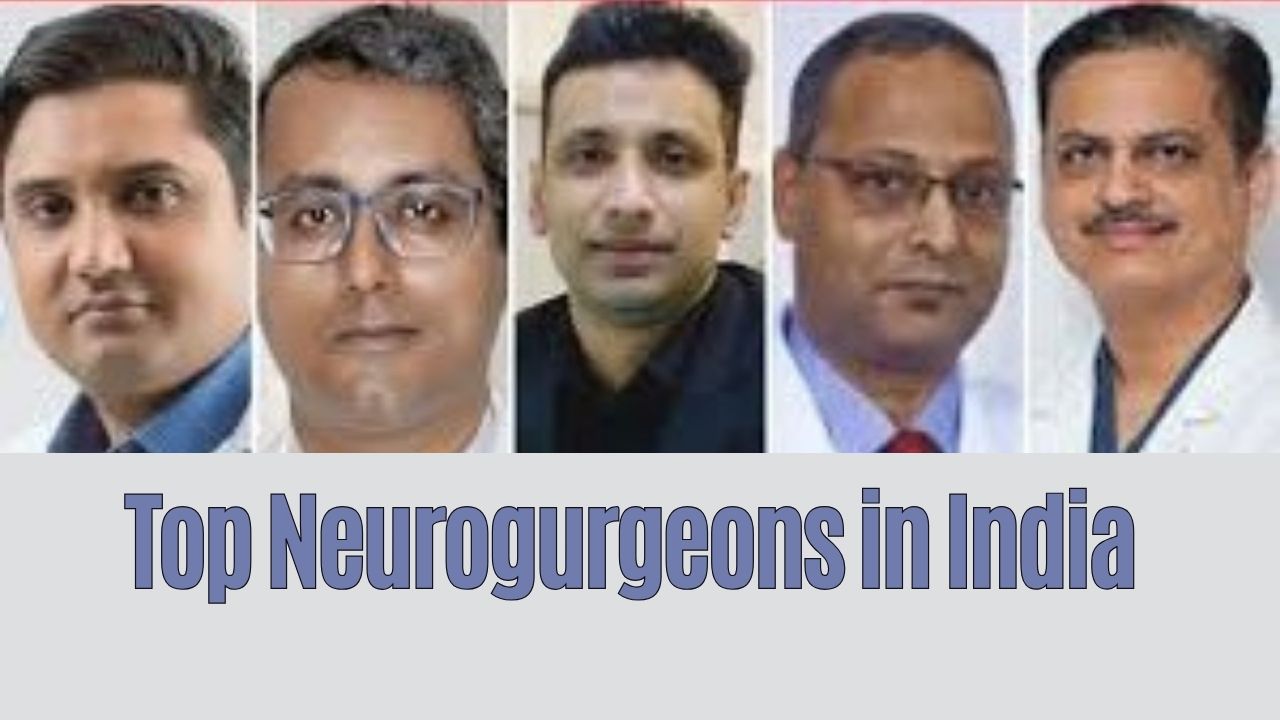
A brain tumour manifests itself by the accelerated growth of cells in the brain. Most brain tumours are benign, meaning they are not cancerous. But irrespective of whether they are cancerous or not, brain tumours can affect normal brain functions should they grow large enough to press against the surrounding nerves, blood vessels, and tissue.
Brain tumours can be of two kinds, benign and malignant. Benign tumours have no cancer cells and hence are locally contained and grow slowly, while malignant tumours have cancerous cells that multiply rapidly.
Benign tumours are easier to identify and extract surgically and are unlikely to grow back upon successful removal.
Malignant tumours can multiply at a rapid pace, enabling them to spread to other parts of the brain or nervous system, and are capable of causing life-threatening complications.
Brain tumours can be categorised as primary or secondary.
- Primary brain tumours usually originate in the brain, and most are typically benign. They are unlikely to spread to other parts of the brain or spinal cord.
- Secondary brain tumours also known as metastatic brain tumours, are malignant and originate elsewhere in the body from which they spread to the brain. Metastatic brain tumours tend to be more prevalent than primary brain tumours and can rapidly increase in size, thereby invading nearby brain tissue.
The most prevalent forms of cancer that can spread to the brain are:
- Breast cancer
- Colon cancer
- Kidney cancer
- Lung cancer
- Skin cancer (melanoma)
Signs and symptoms accompanying a brain tumour will vary depending on the tumour’s location, type and size. Generally these are:
- Partial or complete vision loss.
- Severe headaches in the morning.
- Seizures or convulsions.
- Difficulty when it comes to forming thoughts or speaking out.
- Sudden personality changes.
- Paralysis on one side of the body.
- Loss of balance or feelings of dizziness.
- Hearing loss.
- Nausea or vomiting, or even difficulty swallowing.
- Possible disorientation.
Brain tumour symptoms by location:
The central part of the brain is called the cerebrum and is where most tumours occur. Brain tumours in different parts of the cerebrum manifest themselves with their own set of symptoms.
Brain tumours found in the front of the brain or the frontal lobes may hinder the ability to balance and trouble walking. The frontal lobe controls the individual’s thinking and movement processes. As a result, any tumour in the frontal lobe could cause behavioral and emotional changes; besides impaired judgment, loss of sense of smell or vision loss; paralysis on one side of the body, and the onset of memory loss.
Brain tumours in the middle of the brain, where the parietal lobes are found, process information such as the individual’s ability to touch, taste, smell, see, and hear. Tumours of the parietal lobe are responsible for impaired speech, difficulty in writing, lack of ability to recognize people, and impede hand-eye coordination.
Brain tumours towards the back of the brain or the occipital lobes may cause vision loss in one or both eyes, blurry vision, and hallucinations.
Brain tumours in the lower part of the brain can affect the temporal lobes and cause speech impediments, short and long-term memory loss, and even aggressive behavior.
Diagnosing brain tumours:
There are several tests that healthcare providers can use for diagnosing brain tumours, including:
- Brain MRI or CT scan: Sophisticated imaging techniques are used to identify the exact location of brain tumours. Magnetic resonance imaging (MRI) is one such imaging test for determining brain tumours and is usually the best option. Computed tomography (CT) works as an alternative if, for some reason, the individual is unable to undergo an MRI.
Before undergoing either of these tests, a substance known as a contrast agent is injected into one of the veins. This substance makes it easier to spot the tumour and can show its size and exact position in vivid detail. Your healthcare provider may also examine other body parts, such as your lungs, colon, or breasts, to see if the tumour has spread.
- Biopsy: Healthcare providers may conduct a procedure known as a biopsy which involves the removal of a small piece of the tumour. They proceed to examine the sample to identify the type of tumour and if it’s cancerous. It is the neurosurgeon who performs the biopsy, following which the pathologist steps in to provide the diagnosis and decides if the tumour is benign or malignant.
- Spinal tap (lumbar puncture): In this procedure, the healthcare provider extracts cerebrospinal fluid (CSF) from around your spine with a small needle. The fluid is sent to the laboratory, where it is examined for cancerous cells. This procedure may be recommended if it is suspected that the cancer has invaded the tissue layers covering the brain.
- Specialised tests: Certain specialized tests aid in diagnosing brain tumours. Your healthcare provider may recommend blood tests to detect the presence of what are called tumour markers that signify the existence of tumours. They can also test for any abnormalities in the genes that are characteristic of specific tumours.
If you experience any symptoms of a possible brain tumour, your healthcare provider will conduct a physical examination. The provider would also quiz you about:
- Symptoms.
- Your past medical history.
- Any medications being consumed.
- If you have undergone any surgeries or medical treatments.
- Family medical history.
A detailed diagnosis would likely involve a neurological exam by your healthcare provider. They would take a closer look and evaluate any changes in your:
- Balance and coordination.
- Mental alertness.
- Hearing and vision.
- Reflexes.
Treatment options for brain tumours:
The treatment options for a brain tumour hinges on several factors. These usually include:
- The tumour’s size, type, and location.
- The number of tumours
- Age and overall health.
Healthcare providers have the option to use a combination of therapies to treat a tumour. Some of the treatment options include:
- Brain surgery (craniotomy): A craniotomy is the most procedure to treat a brain tumour. This operative procedure is usually done after administering a general anaesthetic to the patient, and this renders the patient unconscious and will not feel any pain. Benign tumours can, in most cases, be successfully extracted and are less likely to return.
- MRI-Guided Laser Ablation: MRI-guided laser ablation is a minimally invasive neurosurgical technique to tackle brain tumours. In this procedure, lasers target and remove all traces of the tumour. This approach aids surgeons in addressing even the most complicated brain tumours, such as those found in the vicinity of the sensitive parts of the brain. This makes conventional surgery an unlikely option.
An advantage of MRI-guided laser ablation is that the patient experiences less pain and a shorter recovery time in comparison with craniotomy.
- Radiation therapy: Radiation therapy resorts to the use of high-intensity X-rays to target the tumour cells. Doctors use radiation therapy as an option to slow or stop the brain tumour’s growth. This procedure is usually done after the surgery and may involve chemotherapy as a treatment option.
- Brachytherapy: Brachytherapy as a procedure requires surgery to extract the tumour in the brain, following which they will place tiny radioactive implants in the location where the tumour was present. These implants are also known as seeds.
- Chemotherapy: Chemotherapy uses anti-cancer drugs to eradicate any lingering brain tumour cells. The chemotherapy medication may be administered either intravenously or as a pill. It is usually recommended post-surgery by a healthcare provider to kill any rogue cells left behind and to prevent them from returning.
- Active surveillance: If the brain tumour is not of significant size and shows no outward symptoms, your healthcare provider may decide on a wait-and-watch approach while closely monitoring the tumour for signs of growth. This is done with regular testing.
While preventing brain tumours is a difficult task, reducing the risk of developing tumours is possible. Avoiding smoking, having a healthy diet, avoiding known carcinogens, regular exercise, and avoiding stressful situations are some of the ways to reduce the risk of being affected by brain tumours.
Brain tumour cost in India:
Brain tumour treatment cost in India can vary between INR 4,00,000 (USD 5000) to INR 6,00,000 (USD 7000). Other factors that play a role in the treatment price of brain tumor in India include post-operative care, such as staying in the ICU to hasten recovery, the cost of medication, the doctor’s consultations fees, and any post-surgery tests that are carried out.
Top 10 best Brain tumour hospitals in India
Several hospitals in India can qualify as being among the best brain tumour hospital in India. Some of these are:
- Paras Hospitals, Sector-43, Gurugram.
- IBS Hospitals, Lajpat Nagar, New Delhi.
- Dharmashila Narayana Superspeciality Hospital, Dharamshila Road, New Delhi.
- Sanar International Hospital, Sector-53, Gurugram.
- Medanta – The Medicity Hospital, Sector-38, Gurugram.
- Indraprastha Apollo Hospital, Sarita Vihar, New Delhi.
- Apollo Hospitals, Greams Road, Chennai.
- Apollo Gleneagles Hospital, Canal Circular Road, Kolkata.
- Citi Neuro Centre, Banjara Hills, Hyderabad.
- Global Hospital, Perumbakkam, Chennai
Top 10 best Brain tumour Doctors in India:
Many highly skilled and experienced doctors are adept at neurosurgery and handling brain tumours. Your choice of what you perceive to be among the best doctors for brain tumour in India may vary on your preferences and requirements. Here are some of the most renowned and unarguably the best brain tumour doctors in India.
- Sachin Kandhari, IBS Hospitals, Gurugram.
- Tariq Matin, Paras Hospital, Gurugram.
- Bipin Walia, Max Hospital, New Delhi.
- Anil Kumar Kansal, BLK Hospital, New Delhi.
- Vikas Gupta, Manipal Hospital, New Delhi.
- Manish Garg, Dharmashila Narayana Superspeciality Hospital, New Delhi.
- Harnarayan Singh, Sanar International Hospital, Gurugram.
- Gurneet Sawhney, Fortis Hospital, Mumbai.
- Ashuvi Kunjan Agay, Medanta – The Medicity Hospital, Gurugram.
- Sudheer Kumar Tyagi, Indraprastha Apollo Hospital, New Delhi.
My Med Trip is a leading healthcare and medical tourism company in India. We are offering complete medical tourism services in India for foreign patients. We also provide free medical consulting with appointments with the best hospitals and doctors in India. Our main medical tourism services are kidney transplant, liver transplant, liver cancer treatment in India, best kidney transplant hospital, shoulder replacement in India, brain tumor surgery hospitals in India, knee surgery, top heart hospital in India, liver transplant, bone marrow transplant in India, hip replacement, best cardiologist in India etc.







